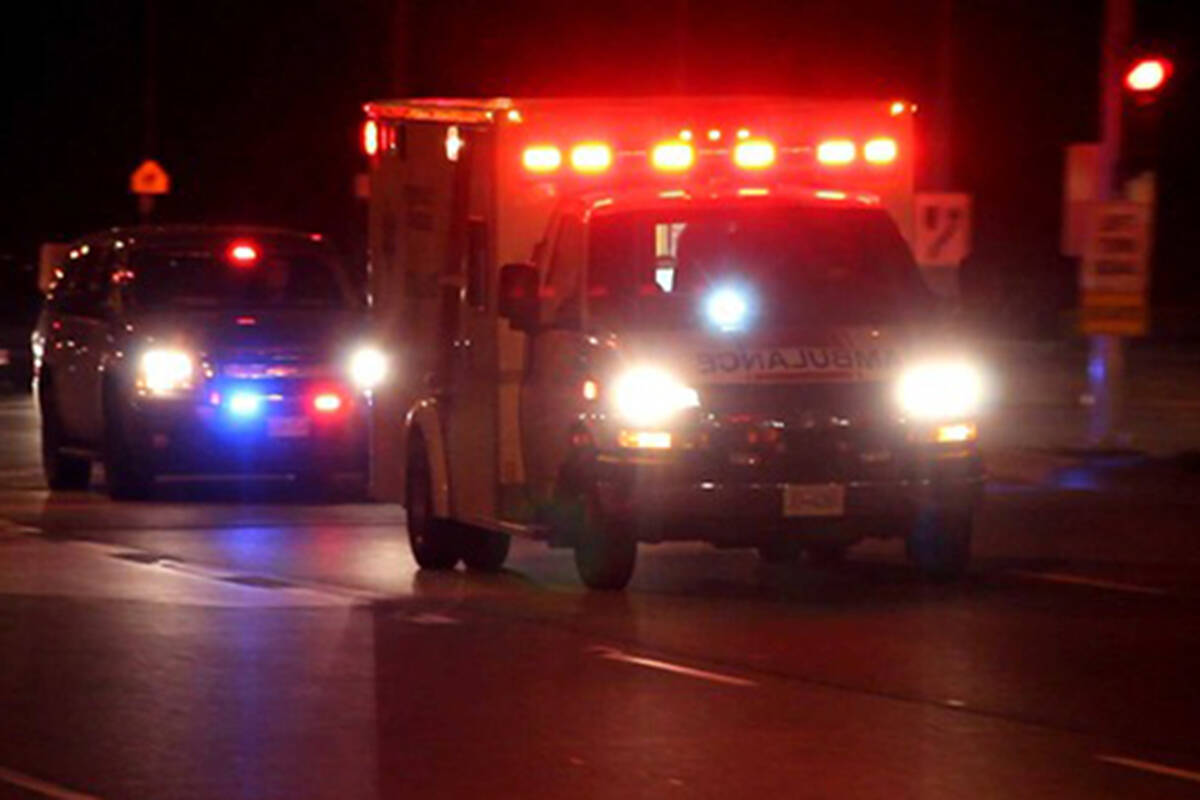Two Quesnel teenagers have been killed in a motor vehicle incident.
The crash occurred Nov. 26, reported at about 5:30 a.m.
“Two local teens are sadly deceased, following a single-vehicle collision on the Barkerville Highway near Corbett Road,” said Quesnel RCMP Sgt. Clay Kronebusch. “The vehicle was travelling eastbound on the highway when it left the roadway, striking a tree. A 17-year-old boy and 17-year-old girl were found deceased at the scene of the collision. The cause of the collision is unknown.”
Despite Monday being a pre-planned non-instructional day, Correlieu Secondary School issued this statement Sunday night: “The school will be open for students to access counselling and support.”
The Quesnel RCMP would like to offer our condolences to the families, friends and loved ones of the two teens during this tragic time,
said Kronebusch.
Anyone experiencing emotional turmoil or confusion at this time is encourage to call the 24-Hour Crisis Line of Northern BC at 1-888-562-1214 or the dedicated line for young people is 1-888-564-8336.
“You may feel unsure of how to support a teen who is grieving. Here are some ideas that may help,” said as statement from HealthLinkBC, in light of the network of young people who knew these two youths.
HealthLinkBC’s guidelines for grieving youth:
◦ Teach your teen about the grieving process.
◦ Teens may need help telling the difference between normal feelings and feelings of grief. Reassure your teen that grief is normal.
◦ Make time to listen to your teen.
◦ When a teen wants to talk, give your undivided attention. This lets the teen know that they are important and that grieving is important.
◦ Your teen may talk about the loss in indirect ways. Listen and respond in a way that shows you’re trying to understand.
◦ Resist the urge to offer advice or to try to solve your teen’s problems. Let your teen use their own problem-solving skills.
◦ Let your teen react to the loss in their own way.
◦ Some teens are naturally quiet and may only express their grief in private. Some may react strongly, even showing rage. They may need to be reassured that intense feelings are a normal reaction to grief.
◦ A teen who is grieving may question the meaning of life, what happens after death, and why bad things happen to good people. You can help by allowing your teen to ask questions.
◦ Give your teen time to adjust to a loss.
◦ Your teen may not be ready to respond to a loss at the same time as you or other people. Don’t expect your teen to grieve on your timetable.
◦ Know what’s normal for your teen’s age group.
◦ Some expected changes in thinking occur during the early, middle, and late teenage years. Understanding these may help you guide your teen in processing grief.
Early teens:
◦ Young teens may feel ill at ease talking about grief.
◦ Ask your teen to draw a picture, make a collage, or write a story or poem about the loss. Talk about the feelings that are expressed in the activity.
Middle teens:
◦ Middle teens need activities that express their feelings in a healthy way. Look at photographs, watch a movie about loss, or listen to music with your teen.
Late teens:
◦ Older teens grieve more like adults, but they may not want to take part in adult activities associated with loss, such as attending a memorial service.
◦ Respect these feelings. Don’t force your teen to take part in activities that feel uncomfortable. Help your teen find other ways to express grief, such as a private service at home.
Set reasonable limits on behaviour.
After a loss, teens may become more rebellious. This is often a sign that a teen is having intense feelings. Be firm with your teen and clear about your expectations.
If behaviour doesn’t improve, start by talking calmly with your teen. Seek professional counselling if you’re not able to handle the behaviour on your own.
Tell other significant adults in your teen’s life about the recent loss.
Teachers, school counsellors, and coaches may also be able to help your teen work through grief.

